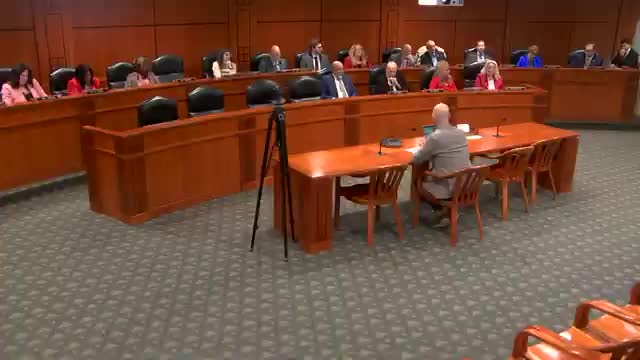Jeff Rosa addresses House Bill implications for Physical Therapy Compact in Michigan
March 19, 2025 | 2025 House Legislature MI, Michigan
This article was created by AI summarizing key points discussed. AI makes mistakes, so for full details and context, please refer to the video of the full meeting. Please report any errors so we can fix them. Report an error »

In a recent meeting of the Michigan Legislature's Health Policy Committee, discussions centered around the proposed Physical Therapy Compact, which aims to streamline the licensing process for physical therapists across state lines. This initiative is particularly significant for Michigan residents, as it promises to enhance access to physical therapy services, especially in underserved areas.
Jeff Rosa, the compact administrator, emphasized that the compact provides an alternative pathway for physical therapy providers to practice in multiple states without the lengthy licensure process currently in place. Instead of waiting weeks or months for approval, therapists could obtain the necessary privileges in a matter of minutes. This change is expected to improve patient access to care, particularly in rural regions where healthcare providers are often scarce.
The compact would allow Michigan physical therapists to purchase a compact privilege for practice in other participating states, eliminating the need for dual licensure. This flexibility is anticipated to attract more professionals to practice in Michigan, as many new graduates consider the compact's availability when choosing where to obtain their first license.
Committee members raised questions about the implications of the compact, including how disciplinary actions would be handled. Rosa clarified that if a therapist with a compact privilege violates Michigan's practice laws, the Michigan Physical Therapy Board would have the authority to revoke that privilege, ensuring public safety and accountability.
The proposed legislation, House Bills 4101 and 4102, is seen as a significant step towards modernizing the physical therapy profession in Michigan. By joining the compact, the state could not only enhance the quality of care available to residents but also potentially generate revenue through compact fees.
As the committee continues to evaluate the compact's benefits, the focus remains on how these changes will directly impact the community's access to essential health services. The next steps will involve further discussions and potential voting on the proposed bills, with the aim of improving healthcare delivery across Michigan.
Jeff Rosa, the compact administrator, emphasized that the compact provides an alternative pathway for physical therapy providers to practice in multiple states without the lengthy licensure process currently in place. Instead of waiting weeks or months for approval, therapists could obtain the necessary privileges in a matter of minutes. This change is expected to improve patient access to care, particularly in rural regions where healthcare providers are often scarce.
The compact would allow Michigan physical therapists to purchase a compact privilege for practice in other participating states, eliminating the need for dual licensure. This flexibility is anticipated to attract more professionals to practice in Michigan, as many new graduates consider the compact's availability when choosing where to obtain their first license.
Committee members raised questions about the implications of the compact, including how disciplinary actions would be handled. Rosa clarified that if a therapist with a compact privilege violates Michigan's practice laws, the Michigan Physical Therapy Board would have the authority to revoke that privilege, ensuring public safety and accountability.
The proposed legislation, House Bills 4101 and 4102, is seen as a significant step towards modernizing the physical therapy profession in Michigan. By joining the compact, the state could not only enhance the quality of care available to residents but also potentially generate revenue through compact fees.
As the committee continues to evaluate the compact's benefits, the focus remains on how these changes will directly impact the community's access to essential health services. The next steps will involve further discussions and potential voting on the proposed bills, with the aim of improving healthcare delivery across Michigan.
View full meeting
This article is based on a recent meeting—watch the full video and explore the complete transcript for deeper insights into the discussion.
View full meeting
